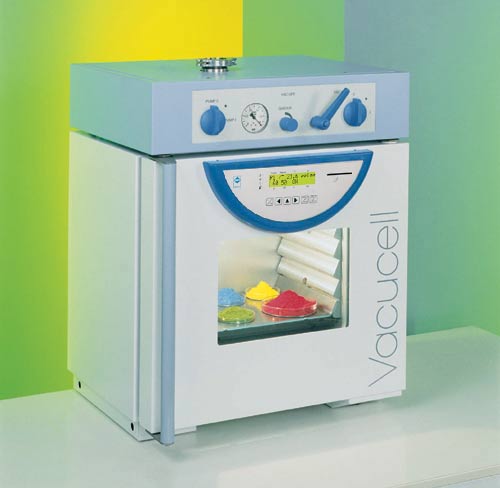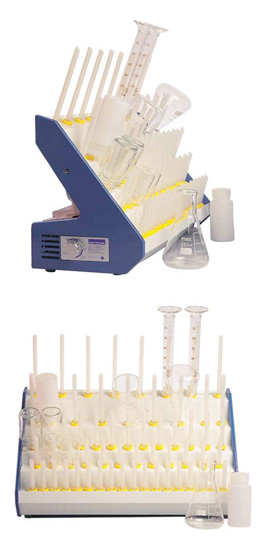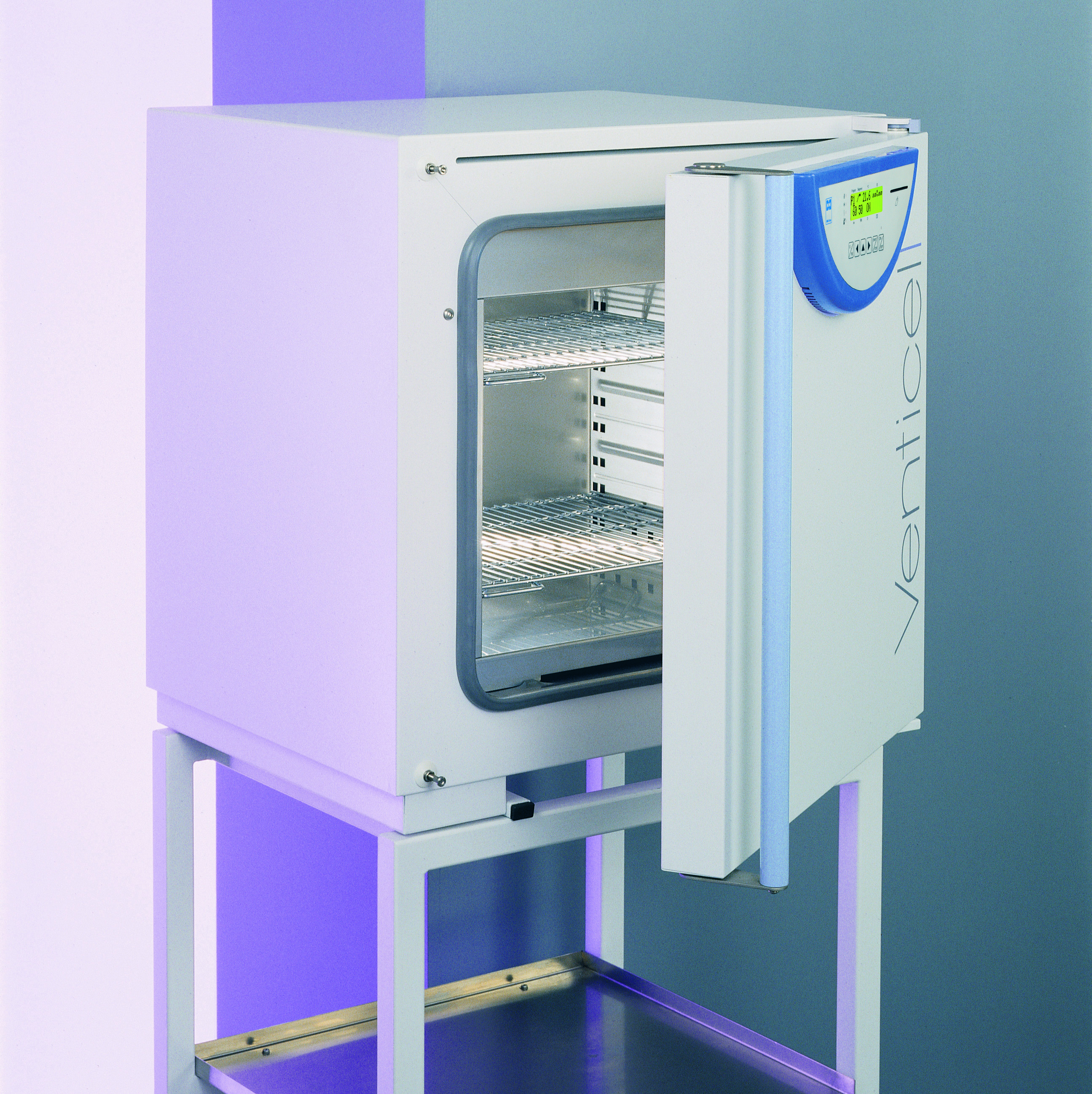Šildymo įranga

Vacuum chambers provide bulk vacuum drying and degassing capability with the possibility of chamber air extrusion by inert gas. Vacuum ovens can be used not only for heat labile and oxidation sensitive substances (i.e. powders, granulates and others) but also for pieces with hardly accessible openings and threads. These units are ideal for drying of samples up to a constant mass. They are to be used especially in the field of polymer processing, in pharmaceutical, chemical, electrical and other industries.
Steam sterilizers (sometimes referred to as steam autoclaves, or just autoclaves) are an essential part of the decontamination and sterilization process in research and healthcare facilities. These devices are used to sterilize equipment and supplies by subjecting them to high pressure saturated steam at elevated temperatures for a time that depends on the size of the load and the contents. Autoclaves are available from small bench top devices that are meant for small scale research to floor loaded, room sized machines designed for large hospitals and research centers.

Glassware dryers offer an economical and efficient method of drying and storing most containers, glassware and plasticware. A large volume of air is drawn over the thermostatically controlled heating elements and forced through each drying tube. This rapid flow of warm air dries glass or plastic quickly without harm. The process uses a minimum of electricity and is therefore considerably cheaper than oven type dryers. Dryers usually employ a space saving stepped design which allows for easy removal of any item and an economic operation fitted with a multitude of stain resistant drying tubes.

High-tech (forced) thermal convection ovens for heating and drying of materials with an accurate and reliable control of individual processes. These ovens are suitable for use in R&D, production, business activities, or for quality control by enabling operations from simple glassware drying to complex, controlled heating applications. Process applications can be for annealing, die-bond curing, drying, polyimide baking, sterilizing, and other industrial laboratory functions. Typical sizes range from several liters to cubic meters with temperatures that can be over 340 °C.
Decontamination chamber is successful in combating a broad variety of viruses and microorganisms. It is less damaging than an autoclave to laboratory equipment, and demands less power. Decontamination chambers usually employ hydrogen peroxide, chlorine dioxide or formaldehyde generators. The media generated is introduced into the chamber via a specially adjusted nozzle system with impulse control and integrated heater. The introduction takes place as intensely as possible and with quick even distribution. This assures an even and quick introduction into the chamber.






